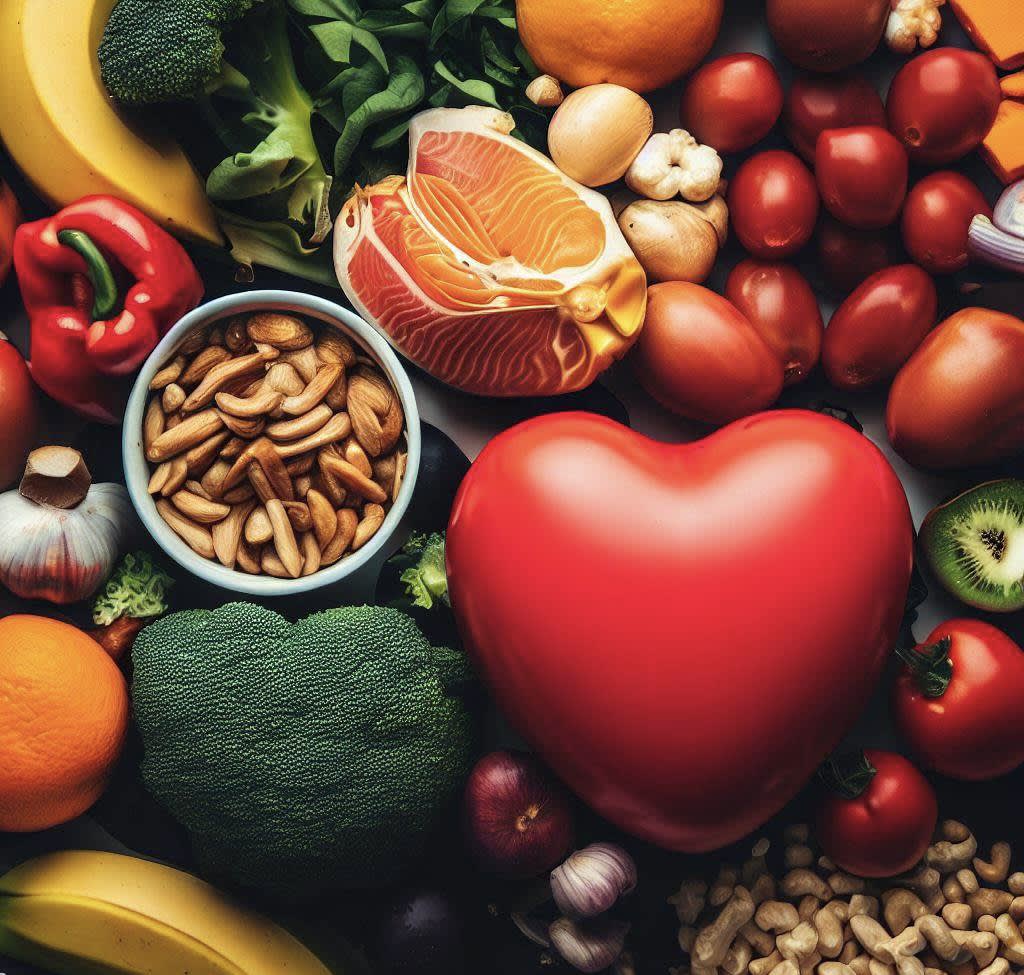Heart-Healthy Eating: Foods That Promote Cardiovascular Health
Revolutionize Your Heart Health with These Mouthwatering Foods!

The human heart is a vital organ responsible for pumping oxygenated blood throughout the body, delivering essential nutrients and removing waste products. As the cornerstone of our circulatory system, maintaining a healthy heart is crucial for overall well-being. While factors like genetics and physical activity play significant roles, diet plays an equally important role in promoting cardiovascular health. Adopting a heart-healthy eating pattern is an effective strategy to reduce the risk of heart disease and improve overall cardiovascular well-being. In this essay, we will explore the foods that promote cardiovascular health and outline the benefits they offer.
Fruits and Vegetables:
One of the most important components of a heart-healthy diet is a generous intake of fruits and vegetables. These nutrient-rich foods are packed with vitamins, minerals, antioxidants, and dietary fiber that contribute to cardiovascular health. Studies have shown that individuals who consume a variety of fruits and vegetables have a lower risk of developing heart disease. Leafy green vegetables, such as spinach and kale, are particularly beneficial due to their high content of vitamins A, C, and K, as well as potassium and magnesium. Fruits like berries, oranges, and pomegranates are rich in antioxidants that help reduce inflammation and lower blood pressure.
Whole Grains:
Incorporating whole grains into the diet is another crucial aspect of heart-healthy eating. Whole grains are unrefined grains that retain all parts of the grain kernel, including the bran, germ, and endosperm. They are excellent sources of fiber, which aids in reducing cholesterol levels and maintaining healthy blood pressure. Examples of whole grains include oats, brown rice, whole wheat, quinoa, and barley. By replacing refined grains with whole grains, individuals can significantly reduce the risk of heart disease and maintain better cardiovascular health.
Lean Proteins:
Choosing lean sources of protein is essential for a heart-healthy diet. Lean proteins include options like skinless poultry, fish, legumes, and nuts. These protein sources are low in saturated fats, which can raise cholesterol levels and increase the risk of heart disease. Fish, particularly fatty fish like salmon, mackerel, and sardines, are rich in omega-3 fatty acids. Omega-3 fatty acids have been shown to lower triglyceride levels, reduce inflammation, and decrease the risk of abnormal heart rhythms. Including a variety of lean proteins in the diet is a smart choice for promoting cardiovascular health.
Healthy Fats:
While it is important to limit saturated and trans fats in the diet, not all fats are harmful. Certain types of fats, such as monounsaturated fats and polyunsaturated fats, are beneficial for heart health. Olive oil, avocados, nuts, and seeds are examples of foods rich in healthy fats. These fats help reduce bad cholesterol (LDL) levels while maintaining or increasing good cholesterol (HDL) levels. Including moderate amounts of healthy fats in the diet can improve heart health and overall cardiovascular well-being.
Low-Fat Dairy Products:
Consuming low-fat dairy products is another component of a heart-healthy eating pattern. These products, such as skim milk, low-fat yogurt, and reduced-fat cheese, provide essential nutrients like calcium, vitamin D, and protein without the high saturated fat content of full-fat dairy products. Calcium and vitamin D are important for maintaining strong bones and teeth, while protein supports muscle health. Choosing low-fat dairy options helps to reduce saturated fat intake and support cardiovascular health.
Foods Rich in Potassium:
Potassium is a mineral that plays a crucial role in regulating blood pressure. Consuming foods rich in potassium can help lower blood pressure levels and reduce the risk of heart disease. Bananas, oranges, avocados, sweet potatoes, and tomatoes are all excellent sources of potassium. By incorporating these foods into a heart-healthy diet, individuals can maintain a healthy blood pressure range and support their cardiovascular system.
In conclusion, adopting a heart-healthy eating pattern is an effective way to promote cardiovascular health and reduce the risk of heart disease. By incorporating foods such as fruits, vegetables, whole grains, lean proteins, healthy fats, low-fat dairy products, and potassium-rich foods, individuals can enhance their overall cardiovascular well-being. It is important to note that a heart-healthy diet should be accompanied by regular physical activity, weight management, and avoidance of smoking to maximize the benefits. Making small, sustainable changes to one's eating habits can have a significant impact on heart health, leading to a longer, healthier life.






Comments
There are no comments for this story
Be the first to respond and start the conversation.